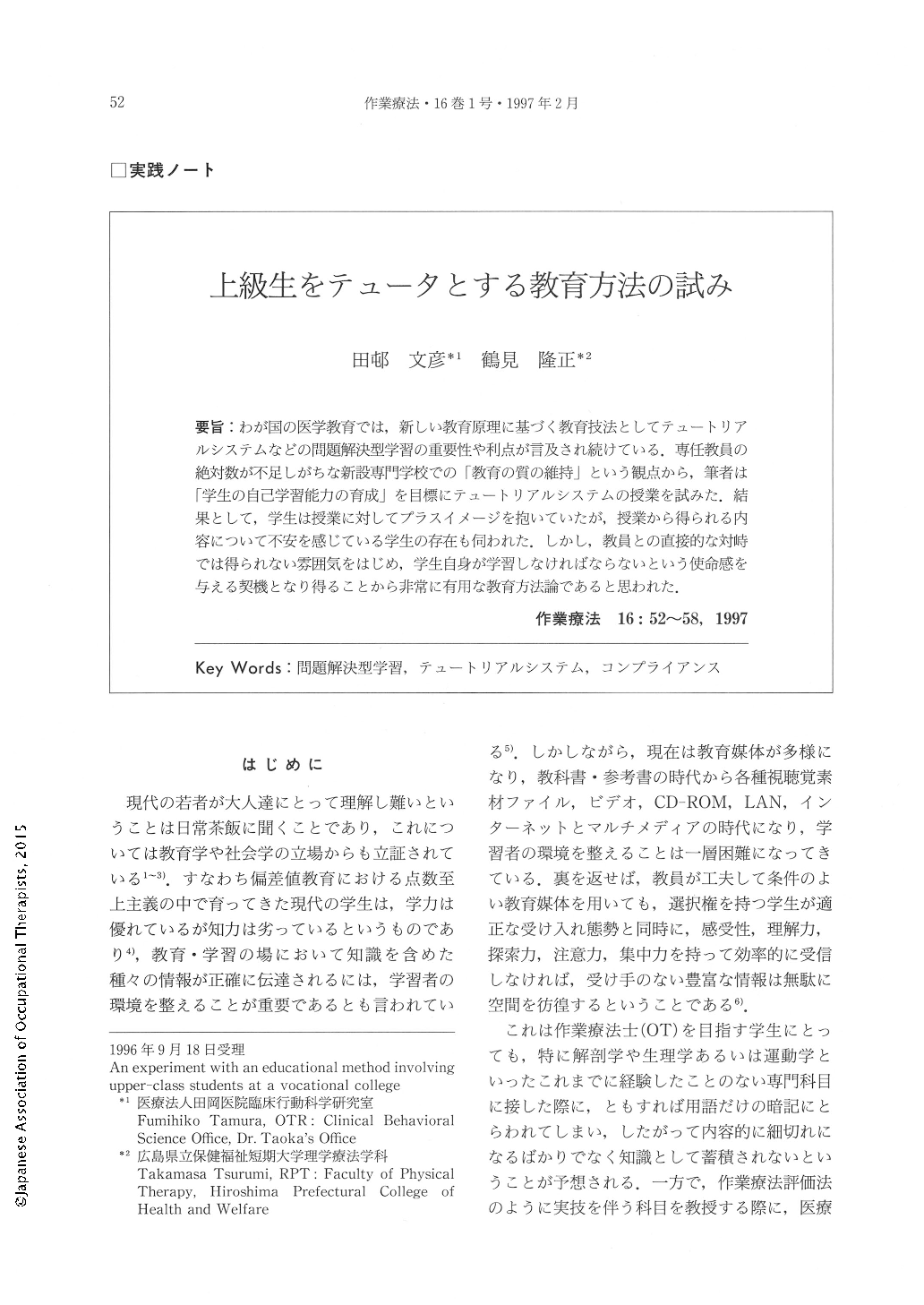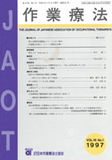Japanese
English
- 販売していません
- Abstract 文献概要
- 1ページ目 Look Inside
- 参考文献 Reference
要旨:わが国の医学教育では,新しい教育原理に基づく教育技法としてテュートリアルシステムなどの問題解決型学習の重要性や利点が言及され続けている.専任教員の絶対数が不足しがちな新設専門学校での「教育の質の維持」という観点から,筆者は「学生の自己学習能力の育成」を目標にテュートリアルシステムの授業を試みた.結果として,学生は授業に対してプラスイメージを抱いていたが,授業から得られる内容について不安を感じている学生の存在も伺われた.しかし,教員との直接的な対峙では得られない雰囲気をはじめ,学生自身が学習しなければならないという使命感を与える契機となり得ることから非常に有用な教育方法論であると思われた.
In our nation, medical education reform has been strengthened due to the establishment of certain general rules. Of particular note, the education technique, introduced into medicine by McMaster University, became popular in the 1960's and contributed to reform. This special educational principle involved problem solving in a tutorial setting. In this setting, students in occupational therapy must be well versed in anatomy, physiology, and kinesiology in order to perform Manual Muscle Testing. The author has observed students with regard to self-learning as they perform Manual Muscle Testing. The 33 studensts observed were in their 2nd year in the Occupational Therapy Department. The concrete class method regarded the following three matters as important: 1) Students should work independently. 2) Even though students should work independently, they should still participate in group discussion. 3) Common teaching materials should be employed. Also, 2nd year students were put together with 3rd year students and then observed employing the above three points. Generally speaking, the students worked well together. However, the 2nd year class did appear to separate themselves, somewhat, from the 3rd year students. These observations are important when applied to class participation, especially since participation is so important to the success of overall class performance. The observations also indicate that the students' feelings of responsibility to the class, as a whole, can affect overall class performance.

Copyright © 1997, Japanese Association of Occupational Therapists. All rights reserved.


